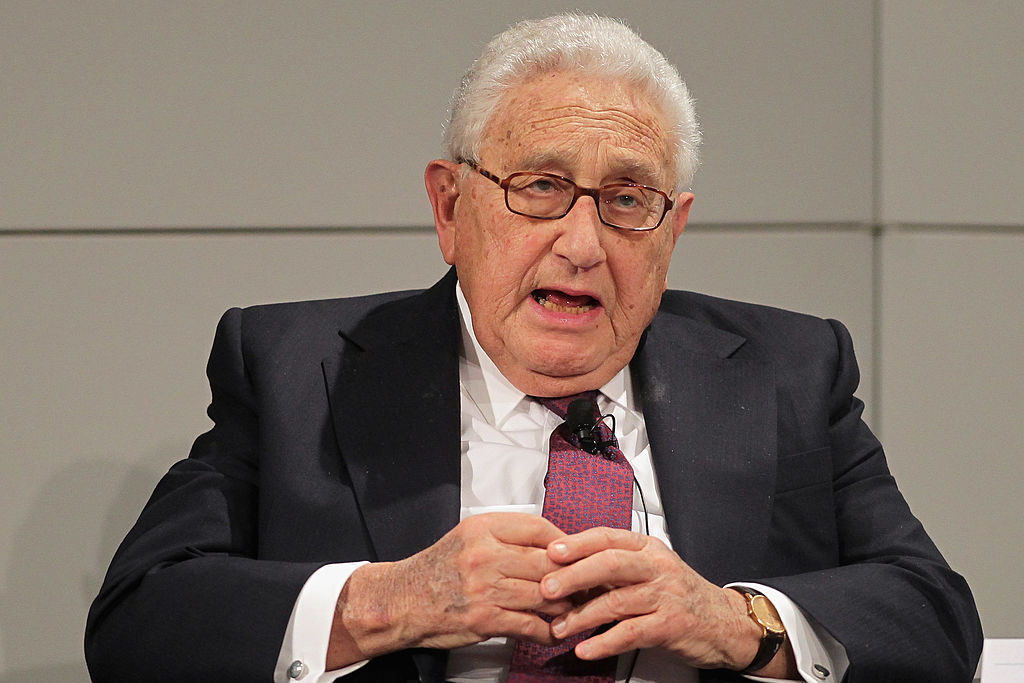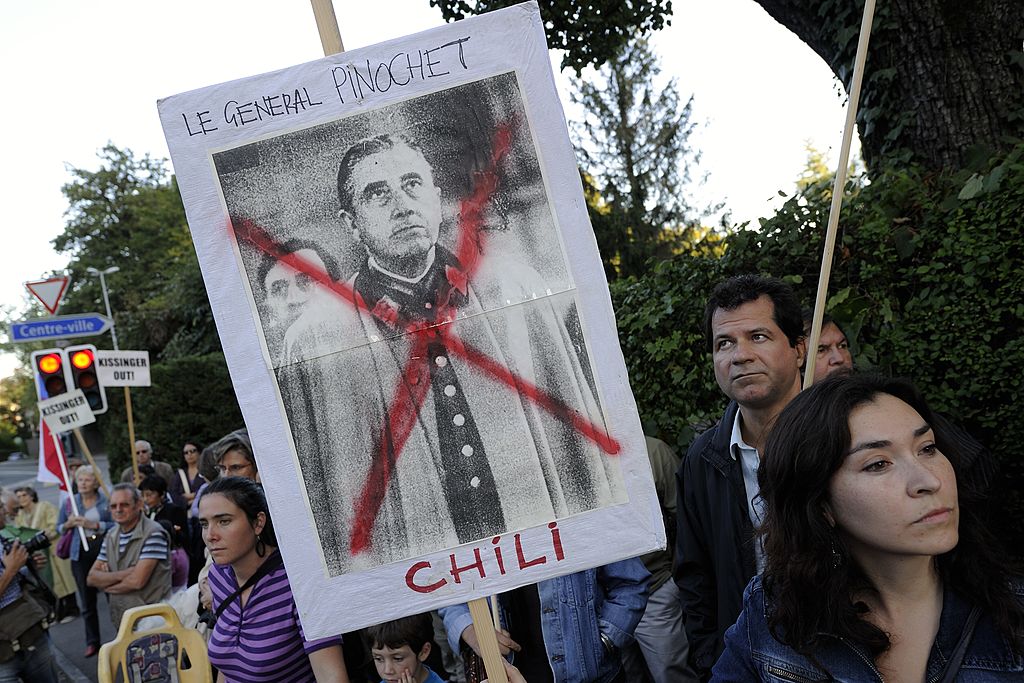- Saturday, April 19, 2025
The valorisation of his realpolitik approach which involves the pragmatic pursuit of power without ideological or moral considerations is often lost on individuals who have had the chance to bear witness to the consequences of his decisions.

By: Nandini Diwan
HENRY Kissinger, a key figure in Cold War diplomacy who passed away last month at the age of 100, is still the subject of intense debate mostly revolving around the ethical implications of his foreign policy actions.
The veteran diplomat’s tenure as the US secretary of state and the national security advisor is marked by strategic interventions in pursuit of the American interest.

While there is admiration for his diplomatic abilities, and the recognition of his key role in establishing détente, opening ties with China, negotiating the end of the Vietnam War, and making diplomatic achievements in the Middle East, including the Camp David Accords, Kissinger’s acts have also been criticised for their ethical ambiguity and moral quandaries.
Read: When Modi told Kissinger about India’s efforts to become $5t economy

The valorisation of his realpolitik approach which involves the pragmatic pursuit of power, interests, and stability in international relations without ideological or moral considerations is often lost on individuals who have had the chance to bear witness to the consequences of his decisions.
Celebrity chef Anthony Bourdain in his 2001 memoir expresses the very same sentiment, “Once you’ve been to Cambodia, you’ll never stop wanting to beat Henry Kissinger to death with your bare hands.”
Read: Kissinger owed us an apology for 1971 war: Bangladesh foreign minister
Further, during Kissinger’s tenure the pursuit of the American interest led to the toppling of many regimes across the globe.

During the Cold War, Latin America, East Asia, and other parts of the world saw a disturbing pattern of democratic governments being overthrown and replaced by authoritarian regimes, a phenomenon that was closely linked to Henry Kissinger’s strategic interventions.
His role in ousting democratically elected presidents and installing authoritarian ones had profound consequences that are still felt today.
One of the most infamous incidents involving Kissinger is his role in the 1973 ousting of Salvador Allende, the democratically elected president of Chile. Under the influence of Kissinger, Washington supported covert operations aimed at destabilising Allende’s administration and ultimately paving the way for a military coup led by General Augusto Pinochet.
This not only resulted in the removal of a legitimately elected leader but also gave rise to an oppressive dictatorship marred by numerous human rights abuses.
Allende, who was a socialist, led nationalisation of industries and land reforms, and this drew internal support as well as criticism, particularly from the conservatives and big businesses. It was this socialist turn that made the US concerned.
Allende’s policies were regarded to be anti-American, especially in light of the Cold War and US efforts to prevent the spread of communism in Latin America. Kissinger, with his realpolitik approach, believed that Allende’s presidency posed a threat to the US’s strategic interests in the region.
Declassified documents and recorded conversations suggest that Kissinger was involved in discussions about destabilizing Allende’s government, famously saying that “I don’t see why we need to stand by and watch a country go communist due to the irresponsibility of its people.”
As a response, covert operations aimed at undermining Allende’s government were launched. These included economic pressures, funding opposition groups, and allegedly creating a climate of instability and discontent within Chile.
Reports suggest that the CIA was involved in covert activities such as providing support to opposition forces which contributed to a destabilization campaign aimed at eroding Allende’s popularity. These targeted efforts culminated in the brutal military coup headed by General Pinochet on September 11, 1973.
The coup resulted in Allende’s death and the establishment of a military dictatorship in Chile. The Pinochet regime spanned nearly two decades and was defined by brutal repression, massive human rights violations, in order to promote neoliberal economic policies.
Even though Kissinger is credited to negotiate the end of the Vietnam War, his policies in Vietnam unequivocally led to widespread civilian casualties, with estimates suggesting that millions of Vietnamese lost their lives, including a substantial number of civilians. The US’s military’s tactics, including aerial bombings, artillery shelling, and the use of chemical weapons like Agent Orange, resulted in significant destruction of villages, infrastructure, and the environment. Large tracts of land still remain barren and devoid of any fertility.
A lasting trauma haunts the Vietnamese to date. Kissinger further contributed to the war’s spread into surrounding nations such as Laos and Cambodia, increasing the suffering for people. The Cambodian secret bombing raids which were supposed to disrupt North Vietnamese supply lines, instead resulted in widespread civilian casualties and political destabilisation, contributing to the establishment of the Khmer Rouge, the ensuing genocide that killed millions of Cambodians.
Furthermore, Kissinger’s role in the negotiation and execution of the Paris Peace Accords, which were supposed to put an end to the conflict, for which he was given the Nobel Peace Prize did not stop the catastrophe.
The accords failed to establish a lasting peace, resulting in the communist takeover of South Vietnam in 1975 and more violence prevailed.
History can decisively conclude that Kissinger’s interventions in these regions reflecting his realpolitik approach that prioritized strategic interests wilfully ignoring the human cost led to immense human suffering, eroded democratic principles, and fostered prolonged conflicts, leaving a devastating legacy in Latin America, Vietnam, Cambodia and others that continues to haunt these nations’ histories.
At last, we must ask ourselves, at what point does our self-interest or self-preservation morph into a menacing peril to others?
Nandini Diwan is a student of public policy. She is a voracious reader who whips up epic honey barbecue wings for her dose of pretentious indie content. She is passionate about mental health, philosophy, feminism, geopolitics and saving the planet from bad vibes and climate change.